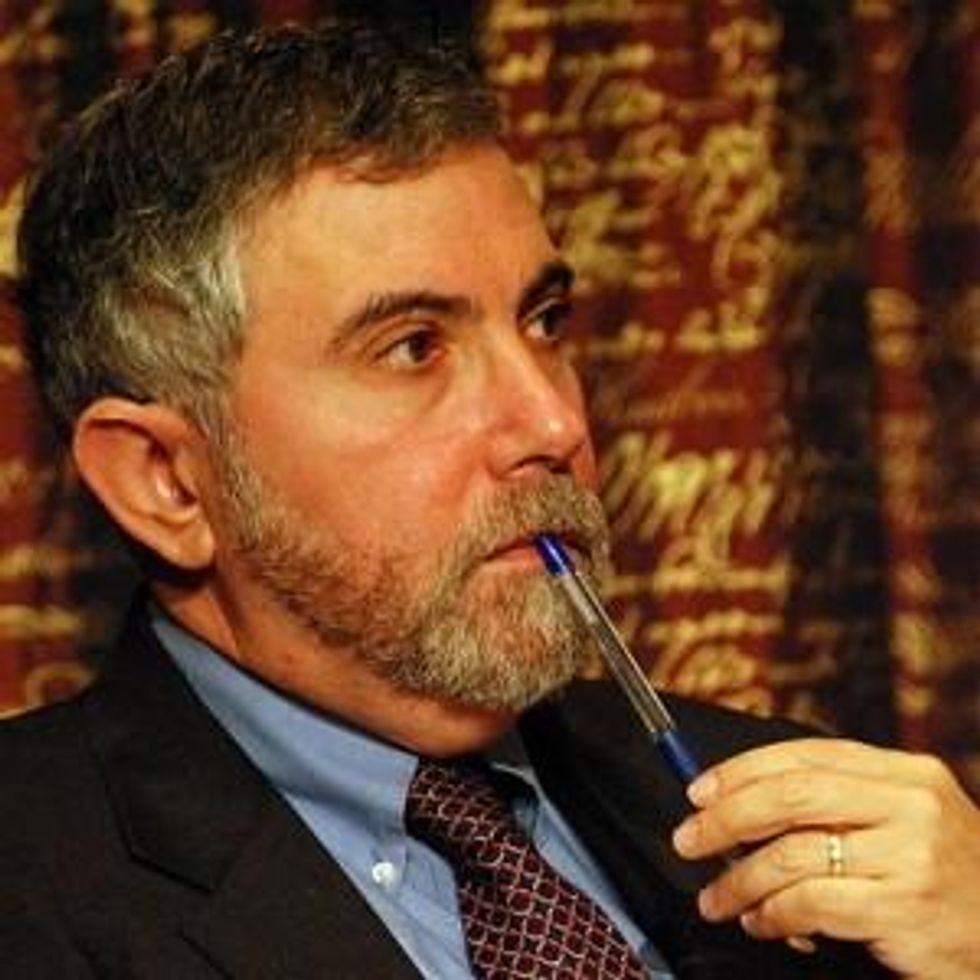

SUBSCRIBE TO OUR FREE NEWSLETTER
Daily news & progressive opinion—funded by the people, not the corporations—delivered straight to your inbox.
5
#000000
#FFFFFF
To donate by check, phone, or other method, see our More Ways to Give page.


Daily news & progressive opinion—funded by the people, not the corporations—delivered straight to your inbox.
I was fairly amazed to read Paul Krugman's latest op-ed in the New York Times, titled "A Permanent Slump?" He seemed to be coming remarkably close to saying what several of us have been trumpeting for the past few years--that world economic growth is ending and we'd better retool accordingly. "What if the world we've been living in for the past five years is the new normal?," he writes.
I was fairly amazed to read Paul Krugman's latest op-ed in the New York Times, titled "A Permanent Slump?" He seemed to be coming remarkably close to saying what several of us have been trumpeting for the past few years--that world economic growth is ending and we'd better retool accordingly. "What if the world we've been living in for the past five years is the new normal?," he writes. "What if depression-like conditions are on track to persist, not for another year or two, but for decades?"

Dear Common Dreams reader, The U.S. is on a fast track to authoritarianism like nothing I've ever seen. Meanwhile, corporate news outlets are utterly capitulating to Trump, twisting their coverage to avoid drawing his ire while lining up to stuff cash in his pockets. That's why I believe that Common Dreams is doing the best and most consequential reporting that we've ever done. Our small but mighty team is a progressive reporting powerhouse, covering the news every day that the corporate media never will. Our mission has always been simple: To inform. To inspire. And to ignite change for the common good. Now here's the key piece that I want all our readers to understand: None of this would be possible without your financial support. That's not just some fundraising cliche. It's the absolute and literal truth. We don't accept corporate advertising and never will. We don't have a paywall because we don't think people should be blocked from critical news based on their ability to pay. Everything we do is funded by the donations of readers like you. Will you donate now to help power the nonprofit, independent reporting of Common Dreams? Thank you for being a vital member of our community. Together, we can keep independent journalism alive when it’s needed most. - Craig Brown, Co-founder |
I was fairly amazed to read Paul Krugman's latest op-ed in the New York Times, titled "A Permanent Slump?" He seemed to be coming remarkably close to saying what several of us have been trumpeting for the past few years--that world economic growth is ending and we'd better retool accordingly. "What if the world we've been living in for the past five years is the new normal?," he writes. "What if depression-like conditions are on track to persist, not for another year or two, but for decades?"

I was fairly amazed to read Paul Krugman's latest op-ed in the New York Times, titled "A Permanent Slump?" He seemed to be coming remarkably close to saying what several of us have been trumpeting for the past few years--that world economic growth is ending and we'd better retool accordingly. "What if the world we've been living in for the past five years is the new normal?," he writes. "What if depression-like conditions are on track to persist, not for another year or two, but for decades?"
